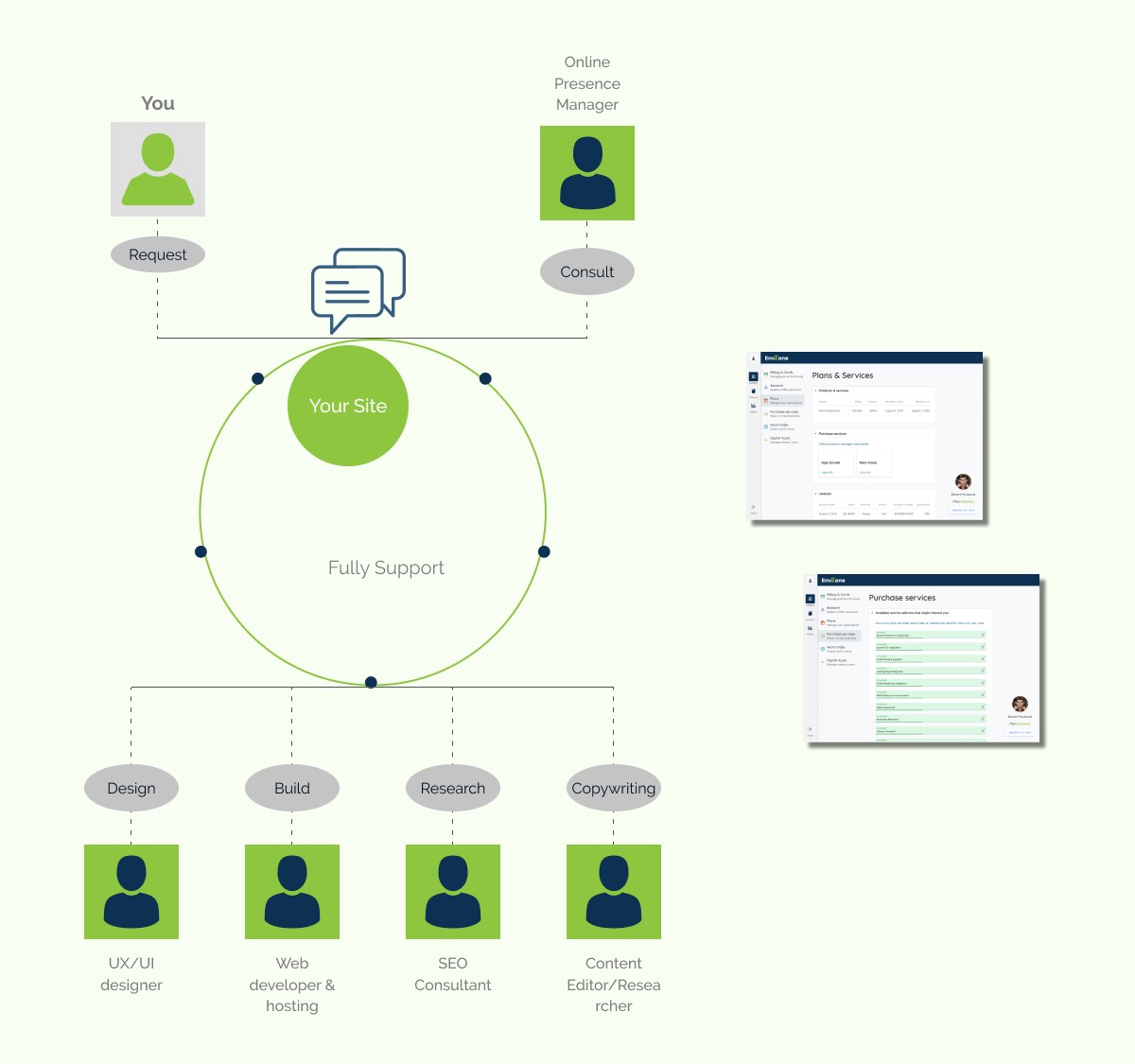Mastering the Art of Delegating for SMBs: Why, What, When, Who & How to Delegate
As Craig Groeschel, founder of Life Church, once commented, “When you delegate tasks, you create followers. When you delegate authority, you create leaders.” As a small business owner, you should – and have to – be working on your business, not in your business. It is a “must” that you invest time in crafting strategic moves, brainstorming breakthrough ideas, and getting laser-focused on fueling the aspects of your business that will drive longer-term profits and growth. These undoubtedly stand as the key to success – yet, actually, a whole number of entrepreneurs will not be able to do that – simply because they knee-deep in handling the day-to-day details.
In fact, small business owners – whether being aware or not – have a tendency to fall into the inherent “traps” of micromanaging, which proves to bring out a plethora of negative connotations. Let’s self-reflect! Have there come (countless) times when you feel stressed, exhausted, and overloaded? Or that your career seems stalled? If your answer is “Yes”, this perhaps indicates that it’s high time to question your habits of micromanagement as well as seriously brush up your delegation skills!
After all, the fine art of delegation seems not to be an innate trait of all entrepreneurs. Especially when it comes to small business owners, managerial traits should be polished before the commission becomes second nature.
WHY Should SBM Owners Delegate? (or Why Should You Escape the Inherent Traps of Micromanagement?)
As a small business owner, you may be concerned over so many things screaming against delegation that it can be challenging to trust oneself to delegate specific critical tasks to them. Indeed, the root cause in the case of several entrepreneurs from the small and medium business category is that they firmly hold the view that their methods of doing things trump others. In other words, the best and only way to get things done right the first time around is to do it on their own.
To some extent and in certain cases, it’s true – no employee, even a senior one, can do a better job of strategizing a vision for business or setting in place non-negotiables or a metric for performance measurement, than the business owner. This is simply because these belong to the “scope of work” of a business leader. Nevertheless, it is a critical character trait to realize where delegation is essential and helpful.

There goes without saying that attempting to keep abreast of every activity the business cover can become overwhelming extremely quickly. As presented in Harvard Business Review, the more a leader takes onto himself or herself, the fewer resources become available, and the more likely that he or she will hit the limit of leadership impact.
According to a Xero survey, a staggering 77% of small business owners are suffering work fatigue, especially within the first 10 years of operation when the stress of keeping afloat is constant. Actually, when you try to do many things well, you end up doing nothing well.
Besides, your employees cannot grow if they are not given the opportunity to assume a wider range of tasks and more responsibility. And as a result, if your employees can’t grow, neither can your business. As regards such a phenomenon, Jesse Sostrin, Ph.D., a Director in PwC’s Leadership Coaching Center of Excellence, does explain this beautifully for the Harvard Business Review: “…the inverse equation of shrinking resources and increasing demands will eventually catch up to you, and at that point how you involve others sets the ceiling of your leadership impact. The upper limit of what’s possible will increase only with each collaborator you empower to contribute their best work to your shared priorities. Likewise, your power decreases with every initiative you unnecessarily hold on to.”
After all, leadership is not only about knowing when to take the reins of a business but also knowing when to let someone else take over for a while.
So, specifically what, when, who and how to be a good delegator and also a great business owner yourself? Let’s read on!
WHAT Should You Delegate?
“Deciding what not to do is as important as deciding what to do.”
– Jessica Jackley, Entrepreneur
Beyond any doubt, it is quite tough to let go of control and trust that everything will work out the way you wish, which makes you concerned that you’re no longer hands-on and in the middle of every part of your business. Yet, again, letting go is a necessary part of the delegation. To delegate effectively, you need to get into a delegation mindset that requires a change in your “I can do it all” mentality.
So, as a rule of thumb, it’s a “should” delegate tasks that you don’t need to do. There have to pivotal responsibilities that are best handled by you, so let’s clearly define what they are. Anything else should be properly allocated to your support staff. Besides, you could cast a glimpse over your task lists and ask yourself a couple of simple yet super-powerful questions such as:
- What do you love doing?
- What do you hate doing?
- What do you love doing but could use a little help with?
- What do you hate doing but can’t delegate to someone else?
- What do you feel neutral about?
Another golden rule is to be honest with yourself, figure yourself out in terms of your strengths and weaknesses. Frankly speaking, should such tasks do not belong to your expertise or be simply something you’re just not good at, then they should be taken on by someone else.
WHEN should you delegate?
No matter whether one business is in its fancy or has transitioned to later stages, the majority of small business owners regard the company they established and operated to be their child. The start of delegation comes from letting go of responsibility and shifting your “child” to someone else. In order to determine when delegation is most appropriate, it’s highly recommended to consider these key questions:
- Is this current task one that someone else can do, or is it critical that you do it yourself?
- Is there someone else who has (or can be given) the information or expertise required to complete the task?
- Does this task provide an opportunity to grow and develop another person’s skills at present and in the future?
- Is this a task that will recur with some frequency, in a similar form, in the future?
- Do you have enough time to delegate the job effectively and stay on top of things? (Kindly note that you should have available time invested for adequate training, for questions and answers, to track and manage the progress, along with revising/reimagining/reworking when needed)

Besides, regarding the question of “when”, accountability should be taken into great account.When you make your mind to divest some of the responsibility of a business onto an employee, the responsibility for jobs will fall squarely on that employee’s shoulders. In other words, they should assume accountability for their specific actions as well as what they do in the business’ name while they’re in charge.
To WHOM Should You Delegate?
One secret of successful delegation is to leverage skilled employees to delegate important tasks. Depending on the particular industry or sector, there may exist a handful of highly skilled and competent staff who can manage certain jobs, including the most impactful ones, just as well – or sometimes even better – than the owner. In such a case, it is more than essential that you learn to be a leader, not just a boss. The difference between the two comes from your delegation practices: Whilst a boss throws unsavory jobs that he or she doesn’t want to do at the employee, a leader delegates tasks based on the strengths of his or her employees.
What should be noted is that since assigning certain types of functions to a single employee is likely to enhance their skill with that type of action, employers that delegate along these lines should be consistent in how to allocate tasks as well. Such a practice of delegation stands high chances of delivering positive gains to the business by having a unique individual that is highly skilled in a particular area.
Besides, with a view to keeping away from micromanaging, it’s a “should” that a small business owner puts a strong emphasis on recruiting the right employees at the very beginning. Rather than a “guidance follower”, one employee, that demonstrates independent competence together with an ability to draw conclusions from given or self-deprived information, will be a great contribution to your business. In such a way, these people can defend their decisions if they are ever called to do so, which indirectly makes them far better suited for delegating tasks.

Should you be still vague on this, these following considerations may help to foster better decisions:
1. The experience, knowledge, and skills of the individual as they apply to the delegated task.
- What knowledge, skills and attitude does the person already have?
- Do you have time and resources to provide any training needed?
2. The individual’s preferred work style.
- How independent is the person?
- What does he or she expect from his or her job?
- What are his or her long-term goals and interests?
- Whether and how do these personal interests align with the work proposed?
3. The current workload of this person.
- Does the person have time to take on more work?
- Will you delegating this task require reshuffling of other responsibilities and workloads?
HOW Should You Delegate?
“Are we limiting our success by not mastering the art of delegation? …. it’s simply a matter of preparation meeting opportunity.”– Oprah Winfrey, media mogul
The “How” emerges as the most pivotal “property” of winning efforts of delegation. Whereas a myriad of practices and tactics is proposed on how to delegate effectively and efficiently, there exist a couple of proven practices that are particularly worth noting:
#1. Establish Repeatable and Solid Systems
One of the very first delegation steps is to design step-by-step workflows for time-consuming tasks that can be handed off to your employees – and then gradually remove you from the process.
So as to maintain the job performance, it’s a sound idea to start off documenting the process with role assignments, due dates, as well as essential “things to know”/resources – clearly and thoroughly. Besides, as already mentioned above, it’s a “must” to take the time to train your employees and post, or simply print out, the workflow so your employees can pick it up and follow along. Never ever deem this to be wasted time – yet time invested in your business. In that way, your role will shift accordingly to being the final stamp of approval, instead of involving yourself in every step along the way.
#2. Master Working on a Single Task
Once you have built out repeatable systems and had the rest of your team manage the day-to-day, you could continuously monitor the entire business activities while also focusing on master working on a single task.
As a business owner, you could shape the habit of strategically orienting your efforts to one aspect of your business on a weekly or monthly basis, which is up to your specific business cycle and seasonality. For instance, should you be a small technology company, you can hone in on your customer training process, considering some questions including: Are there easier ways to convey how your product works? Have you thought of the different ways people learn and employed those as part of your training materials?
Or, if you operate a gift shop, you could focus on analyzing your merchandising strategy, wondering whether your window displays attract passersby, whether you need to increase the number of product samples you offer so people can try before they buy – or whether there remain any feedbacks from shoppers that you can work on.
No matter how simple this idea may seem to be, adopting such a practice may empower you to reinvent or even create new ways to accomplish things more efficiently while also refining for new trends or technology.
What’s more, when you are devoted to focusing on a single aspect of your business, you’re also spending time with the employees who are involved in this particular part of your business. Let’s take apart aspects of everyday tasks and workflows and decide whether there exist any new, better, or more efficient ways of doing them.

#3. Incorporating Technology into Delegation
Compared to larger-scale businesses, small businesses sometimes come up against even more operational challenges, for instance, when it comes to documentation. Usually, there is no standard framework in place for SMB companies to deal with the movement of data. As a result, things may get lost, and the ball gets dropped if logistics and management fall short of the expected standard. As the ability of business owners to document everything does perform a crucial role in delegating, productivity software stands as a godsend, since it allows small business owners to keep their records in order.
In addition to productivity software on documentation, leveraging other technology-based applications and software, such as the SaaS Online Presence Manager, can do wonders for your business.
To take an example, in EnvZone, we do offer an Online Presence Manager as a Service. An Ongoing Presence Management Plan includes designers, developers, strategists and inbound marketing consultants – which is often more efficient and cost-effective than hiring a full team in-house. Rather than being snowed under tons of marketing tasks, concerned about the marketing expertise of your internal personnel, or the risk of losing control when working with external agencies, you will – once enrolling in our flexible MaaS plan, have an on-demand dedicated team who obtains the expertise to help you navigate even the most frustrating of shortcomings.

#4. Continuously Foster Communication
There is no doubt that communication is the key to business success – and this is also essential to the delegation for several reasons.
Accountability and transparency stand as the most obvious ones. Besides, setting up regular communication channels can ascertain that the owner has knowledge of the status of jobs and tasks within their organization. According to the Georgia Small Business Development Center, given that communicating what the requirements of a task are is of utmost importance, keeping channels of communication open during the execution of the job is just as significant.
One of the reasons behind the great importance of open lines of communication is that it allows the employee that was delegated the task to express concerns or seek aid and resources from the business owner. Within an ideal arrangement, the employee can get all the required information from the business owner, as well as any extra resources he/she has obtained, and collectively translate that into a perfect output or final product that will deliver consumers’ satisfaction.
Additionally, should any problem or questions arise, this employee should be free to pick the owner’s brain about how he or she would have handled the situation and then work with that guidance towards addressing the issue well.
The Bottom Line
Are you meeting work deadlines on time? Are you routinely dealing with tasks outside your expertise area? Are you pushing certain tasks to the back burner? Do you often feel burnt out and exhausted? If your answers are “Yes”, then, this is a tell-tale sign indicating that it’s high time that you started off delegating tasks away from yourself and to others. Take a second look over our guide above to get yourself out of the inherent traps of micromanagement, master the art of delegating, and foster your success.









